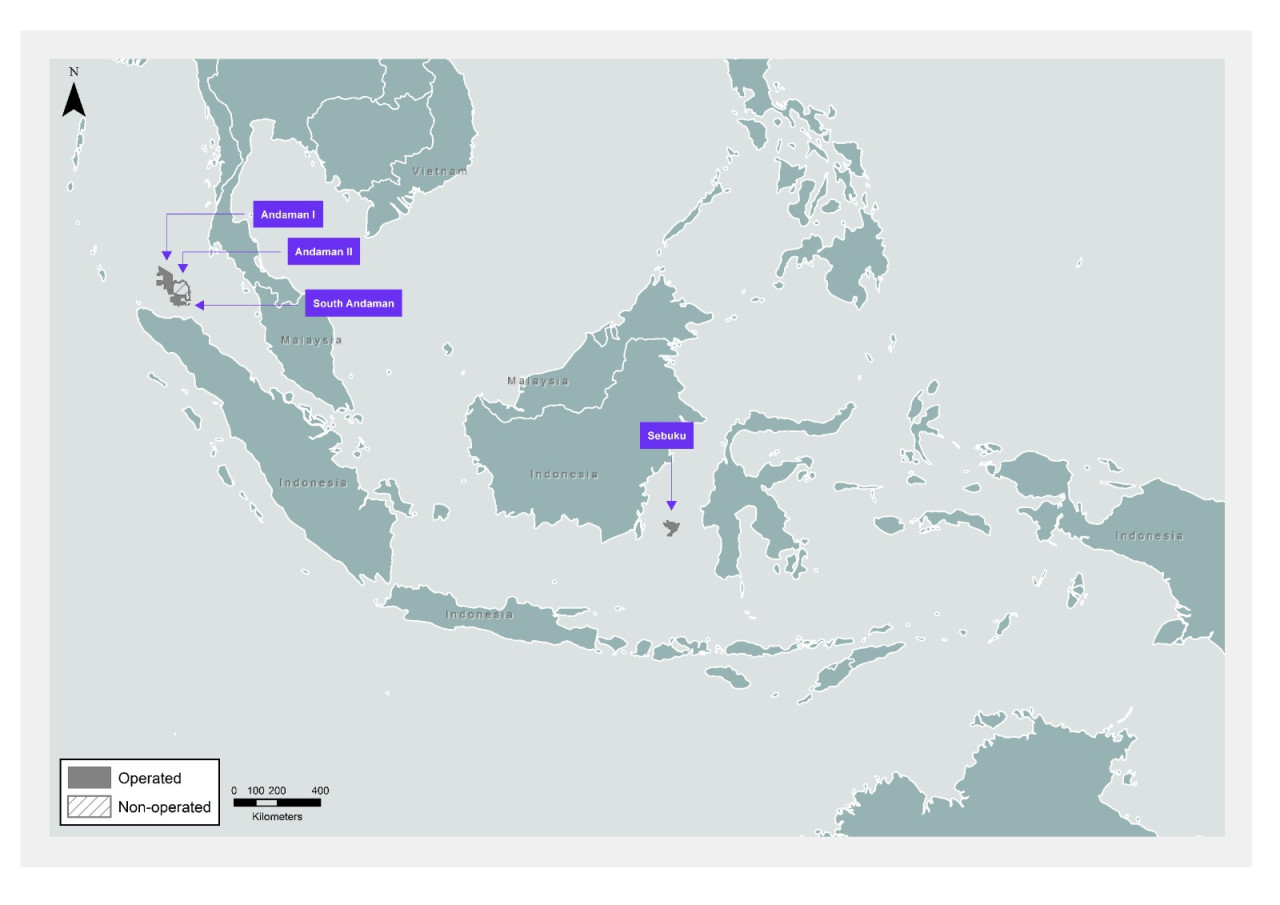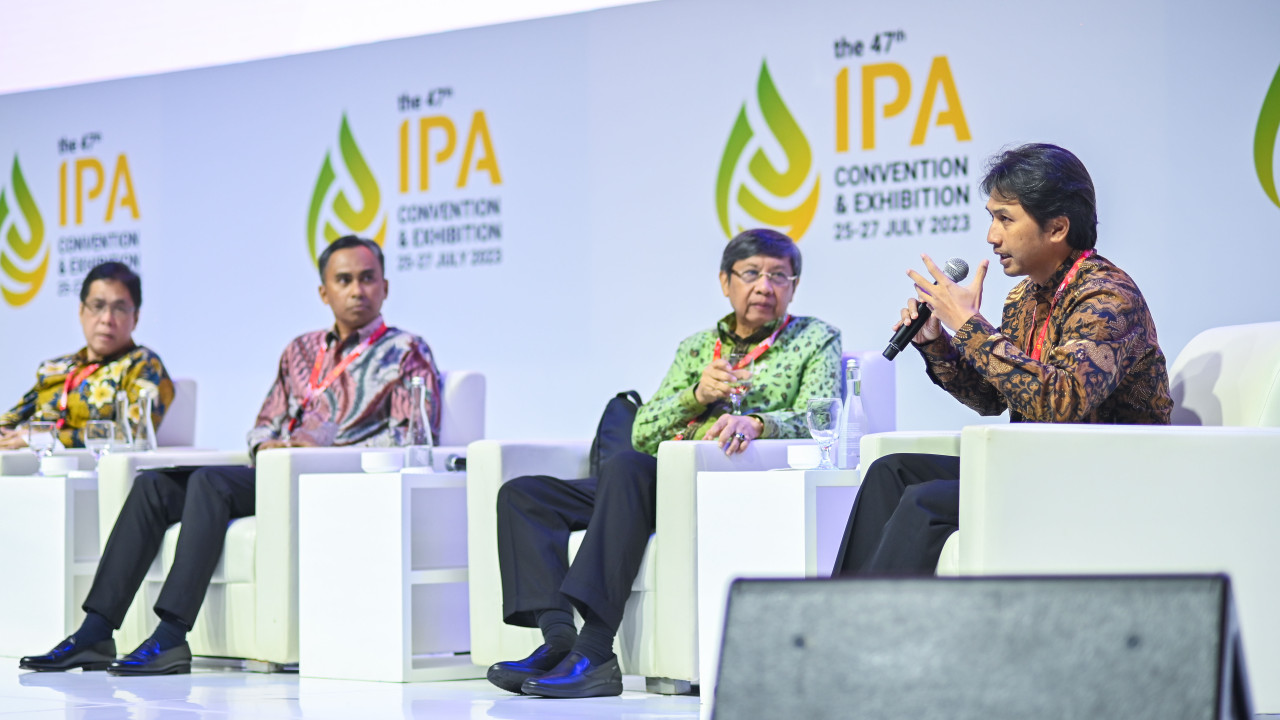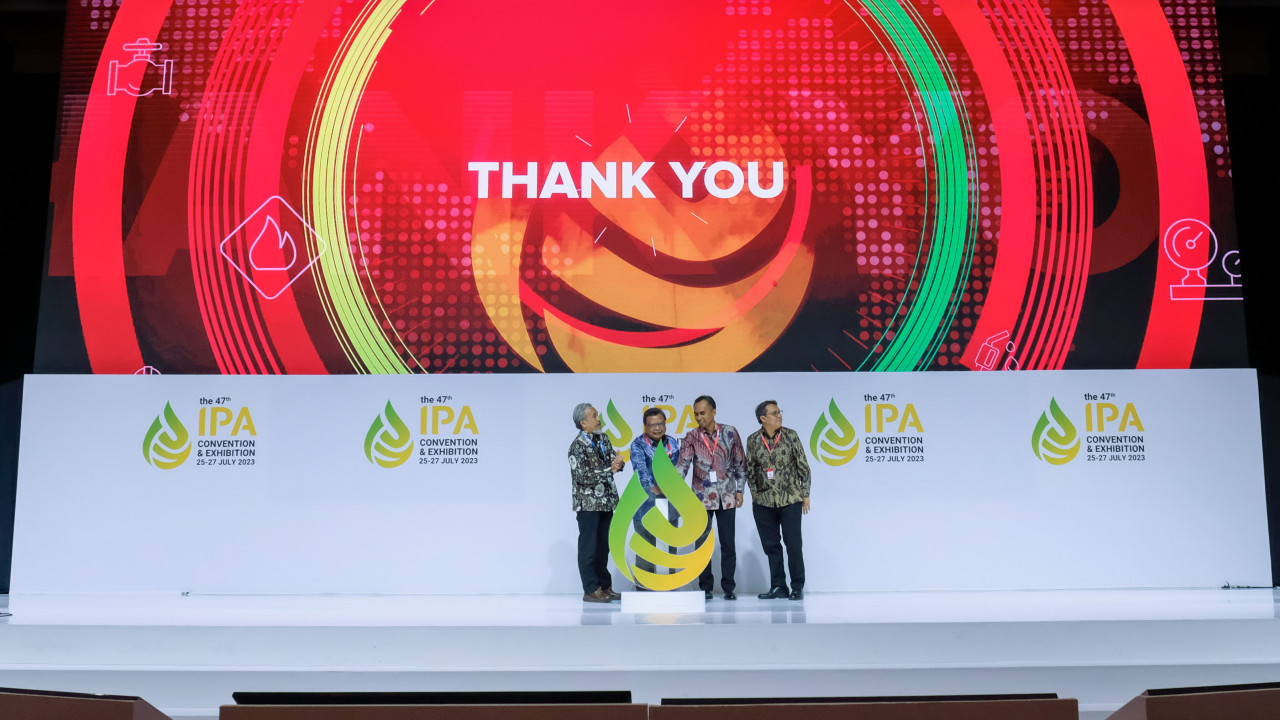Optimism to Pursue Oil and Gas Production Target in 2030
Wednesday, 1st September 2021 | 14.00-16.00
“The Road to 1 MMBOPD/12 BSCFD – Tracking the Progress”
Indonesia seeks to achieve the production target of 1 million barrels of oil per day (MMBOPD) and 12 billion standard cubic feet of gas per day (BSCFD) by 2030. Although Indonesia and the world are currently facing the Covid-19 pandemic, the government is optimistic that these targets can be achieved.
Director General of Oil and Gas at the Ministry of Energy and Mineral Resources, Tutuka Ariadji, said that Indonesia still has large potential for oil and gas reserves, covering 128 basins. More than half of them have not even been explored. "We are still optimistic because there are a number of open areas offered in the next few months," he said.
Tutuka added that exploration is the key to increasing hydrocarbon production in the country. Therefore, the government seeks to provide incentives for the upstream oil and gas industry, develop unconventional fields, and offer flexibility in the production sharing contract schemes, namely cost recovery and gross split.
Regarding incentives, for example, the government is improving the terms and conditions for tendering working areas in 2021. Some of the improvements include reducing the first tranche petroleum (FTP) portion to 10 percent and improving the profit sharing.
However, Tutuka said, efforts to achieve the oil and gas production target in 2030 need the support of all parties. Collaboration between the government, contractors, and Special Task Force for Upstream Oil and Gas Business Activities of the Republic of Indonesia (SKK Migas) needs to be strengthened. "We encourage and support SKK Migas and all oil companies to be committed to discovery, innovation, and work together to achieve production targets," he said.
Based on data from the Ministry of Energy and Mineral Resources, the average national oil production in 2021 is 669,504 barrels of oil per day (BOPD). This is based on the average calculation for the January-May 2021 period. This number is lower than the 2020 achievement of 708,248 BOPD.
Head of SKK Migas Dwi Soetjipto said that the Covid-19 pandemic is a fairly formidable challenge for the oil and gas industry at this time. Reflecting globally, Indonesia's oil and gas investment activities are even affected by 5 to 30 percent. In addition, many drilling activities have to be postponed. Even so, the optimism of achieving the production target remains.
“We are still optimistic with the target of one million barrels. We are intensifying and accelerating to catch up. We also have strong support from the government, in terms of fiscal improvements," he said.
Efforts that are being carried out by SKK Migas to catch up are by intensifying well drilling. Based on SKK Migas data, this year’s target is to have 616 development drillings, but by the end of July 2021 the realization is as many as 220 drillings or around 36 percent.
One of the ways that SKK Migas does is by securing an initial investment commitment in the Rokan Working Area. There are as many as 276 well drilling commitments with the realization of drilling 97 wells until July 2021. "This initial commitment investment is very important to maintain our production," said Dwi.
In addition, to maintain the production rate, there is a program to fill the gap. The progress up to June 2021 showed a production contribution of 1,914 barrels of oil per day (BOPD). By the end of the year, it is expected to contribute 5,000 BOPD.
The second strategy implemented by SKK Migas is the transformation from resources to production with a reserve replacement ratio (RRR) target of more than 100 percent this year. For comparison, last year's achievement was 102 percent, while this year it is projected to be 240 percent. The third strategy is enhanced oil recovery (EOR) and the fourth strategy is exploration for giant discovery.
“As of the end of July 2021, we have drilled 16 of the 48 wells and conducted a 2D seismic survey of 1,917 km and a 3D seismic survey of 733 km. We are also developing unconventional oil and gas strategies, including accelerating regulations related to oil and gas development," said Dwi.
ExxonMobil Indonesia President Irtiza H. Sayyed said the energy sector had successfully adapted in the past few decades. The Covid-19 pandemic is not an obstacle to realizing the one-million-barrel target. His party currently fully supports the government's efforts to achieve the target of one million barrels.
"In Indonesia we have carried out several technological innovations, added exploration in the Cepu Block to increase production, and transferred technology in the development of human resources to support increased oil and gas production," he said.
Sayyed added that private and government partnerships will be the key to attracting investors and boosting oil and gas production. “What investors are looking for in this era of uncertainty is a big return. The state is competent to provide promising offers for investors considering that there are still many potential oil and gas basins in Indonesia,” he said.
Secretary General of the Association of Indonesian Petroleum Engineers (IATMI) Hadi Ismoyo said that there are five obligations that oil and gas contractors must carry out to achieve a production of one million barrels. These include well work programs, surface organization, accelerating the plan of development (POD) for marginal fields, accelerating EOR, and accelerating exploration.
On the other hand, according to him, the government is obliged to realize data disclosure, fiscal policies that support the oil and gas investment climate, and sustainable operations for this industry. In addition, it is necessary to increase organizational capacity in oil and gas business operations so that vertical coordination can be carried out more quickly. "We have to create several breakthrough programs to optimize production," he said.
Fiscal Analyst of the Fiscal Policy Agency (BKF) of the Ministry of Finance, Robert explained, the role of energy is still very large for the Indonesian economy. According to him, state revenues from the oil and gas sector reached Rp 102.9 trillion, while exports reached US$ 8.3 million. "Although it has decreased from the previous year, the value is still quite large for the national economy," he said.
Robert added that currently the global situation is leading to the transition of new and renewable energy (NRE) to reduce carbon emissions and climate change. However, Indonesia also still needs oil and gas. Therefore, it is important to balance national energy security and support the use of clean energy through sound fiscal policies.



